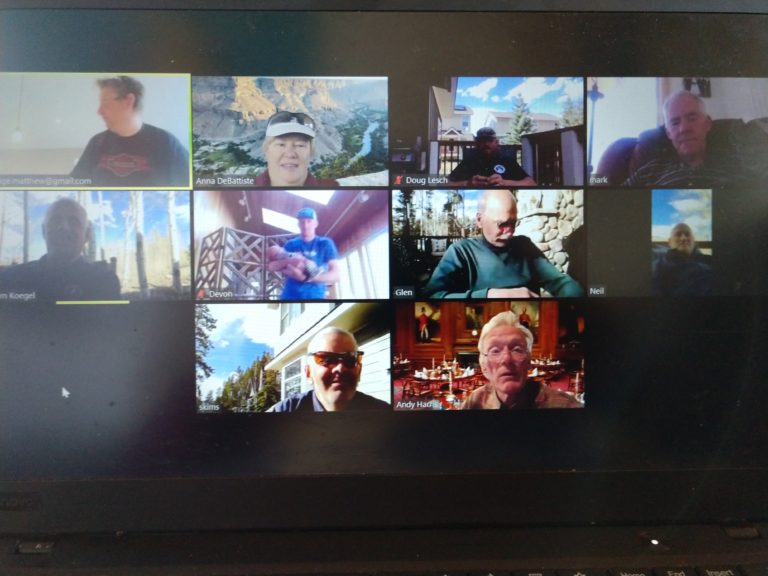I was a ski instructor for about six years, and one of the first things I learned to tell new skiers was, “Your skis want to go where your eyes are looking.” A first-time skier who is frozen in fear will look down at the snow right in front of him/her, and it affects both the skier’s balance and the ability to control the skis and make them turn in the desired direction.
When I was learning to mountain bike, one of my biggest challenges was to navigate a sharp switchback; I would always stare right at the crook of the turn, and that’s exactly where I would end up losing my balance and missing the turn, sometimes even falling off the bike. Someone finally taught me the magic words: your bike wants to go where your eyes are looking. Look past the turn to the straight-away beyond.
I read the popular book this week The Art of Racing in the Rain. It’s a beautiful story told by a dog named Enzo about his love for his owner, a race car driver. The mantra Enzo repeats throughout the book is–you guessed it–your car wants to go where your eyes are looking. Enzo is very in tune with the corollary of that mantra also. Don’t look where you don’t want to go. Don’t look, don’t think about it, don’t stick labels on it or categorize it if it’s not what you want. When the race car driver’s wife dies of brain cancer, Enzo blames the fact that she finally went to the doctor and got a diagnosis. Once the malady is named and categorized and her death is foretold by the doctor, it’s all over. Now she can’t fight anymore, she can only follow the path that has been laid out for her.
It’s easy to see how these ideas apply in the workplace. And it’s not just that you need to look where you want to go; you need to look where others want to go also. Think about the educational experiments that led to the discovery of the Pygmalion Effect. They were all about how students whose teachers had a picture of success for them succeeded, and students whose teachers had a picture of failure for them failed. Our minds, our goals, our efforts, our lives are all influenced by our own expectations and the expectations of others, and especially of others who are in positions of authority, influence or leadership. Expectations are a powerful tool that can be used or abused with equally important consequences.
So:
- Expect the best of your subordinates and teammates, and paint a picture of their success when you talk to them.
- Give people the benefit of the doubt when they do something you don’t like. Ask yourself, why would a reasonable person do that? Now ask them the same question, and be open minded about their answer. Most people are doing what makes sense to them, given how they see their situation.
- Be optimistic about the future of the organization, and paint a picture of success for it. Now communicate that picture through your words and actions.
- Envision where your career will be in one year, five years, ten years. Make sure it’s where you want to go.
- Don’t dwell on your fears about what negative things may happen. Acknowledge the fears, and then paint another picture of the positive future you want and what actions it will take to get there. Now dwell on that instead.
Do you have any tips to add? How else do you make sure your eyes are looking where you want to go?

1 Comment
An insightful article. It’s interesting that human nature tends to apply the “what if” scenario and in reality it can be hugely beneficial to take the leap sometimes.
Relationships are important and it is a great gift to understand the other person’s way of thinking which may differ from your own.